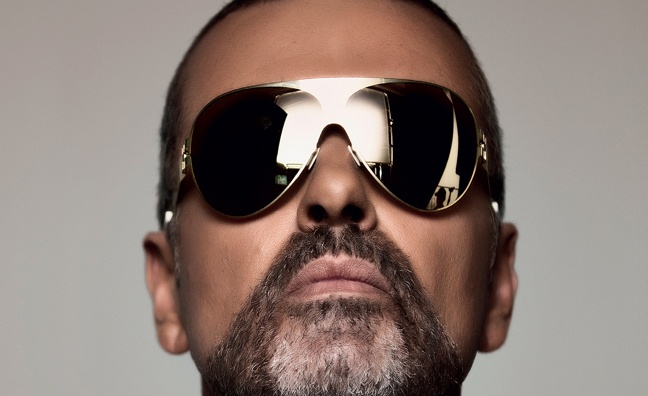George Michael’s Freedom documentary aired on Channel 4 last night – trending on social media as fans hailed the film online.
The 90-minute film, directed by Michael and his latter-day manager and life-long friend, David Austin, largely completed before the singer’s untimely death on Christmas Day 2016, took a candid look at Michael’s career. The journey took viewers from his days in Wham! up until the end of his life, with a particular emphasis on the Listen Without Prejudice, Vol. 1 era.
That period saw former teen star Michael blossom into a serious singer-songwriter, but also decline to promote the record, and ended with him suing his record company, Sony Music, for restraint of trade, claiming he was kept in a state of “professional slavery”.
In an ultra-rare interview for this week’s Music Week cover story, Austin said Michael worked on the documentary until two days before his death, with the final version featuring only a few tweaks from his final edit.
“George was delighted that, having stepped back out of the limelight for a period of time, he was coming back and had something really fantastic and constructive and positive and beautiful to look at,” said Austin. “He was delighted with everything.”
The candid documentary looks likely to have been a ratings hit, and kickstarts the campaign for the reissue of Listen Without Prejudice, released on Friday. But many members of the music industry will also have tuned in, hoping to learn lessons from his rollercoaster career. Here are five of the key takeaways…
1. A SUCCESSFUL ARTIST IS NOT ALWAYS A HAPPY ARTIST
Few people seemed to realise just how unhappy George Michael was at the end of the Faith era. Commercially, he was on top of the world, yet the doc – featuring Michael’s own voiceover, taken from an interview with broadcaster Kirsty Young – pulled few punches. “I was massively unhappy and lonely… If I was looking for happiness, this was the wrong road... The only good part of my day was playing live…” For a man so capable of channelling joy in his music, Michael seemed to too often have very little of it in his own life. Hopefully today’s superstars feel less isolated.
2. PROMOTION IS HARD WORK
“I see hard-sell promotion as prostituting myself,” said Michael at one point, suggesting he was always unlikely to climb back on Faith’s relentless promotional treadmill. But, actually, even Sony’s dream George Michael schedule would likely have looked pretty light next to what’s expected of today’s pop stars. What impact is all that having on artists’ creativity?
3. MUSIC IS LIKE FOOTBALL
Once a star wants to leave, whether it's a football club or a record label, there’s not much you can do. Sony may have contested George Michael’s writ, and even won an unequivocal victory in court that their contract was perfectly legal (Michael’s talk of an appeal turned out to be just that: talk). But, just as with wantaway Premier League stars when Barcelona or Real Madrid come calling, none of that could stop Michael leaving the label to record his next album for DreamWorks instead. Michael admitted in the doc that he “regrets [the case] to this day”, and he did eventually return to Sony, but one of the great label-artist partnerships was broken asunder.
4. MUSIC IS A MORE GLOBAL BUSINESS NOWADAYS
In the documentary, former Sony UK execs Paul Russell and Andy Stephens – who ensured that Listen Without Prejudice outsold Faith in Britain – lament the US bosses who declined to come and hear Michael’s reasons for not promoting the record. But back then, the US market was so dominant, even LWP’s international success couldn’t save it in the eyes of the American execs. That wouldn’t happen nowadays in the days of global Spotify playlists… Would it?
5. LIAM GALLAGHER IS TV GOLD
Not much to do with George Michael, but Liam Gallagher - who preceded Michael on Music Week’s cover - gave another reminder of his star quality. His turn in the documentary proved that – even alongside a stellar cast including Stevie Wonder, Ricky Gervais, Sir Elton John, Mary J Blige, Nile Rodgers and Clive Davis – he’s now his brother’s equal in the lolzy talking heads stakes. He described Michael as a “modern day Elvis” but we particularly enjoyed his considered opinion on Wham! “They were fooking everywhere, wasn’t they?” Someone give this man his own show…
For more on George Michael, see this week’s print edition of Music Week or click here to read our cover story or here to read Paul Russell’s recollections of the court case. To read Music Week's George Michael obituary, click here.
To subscribe to the new-look Music Week and never miss a vital music biz story, click here.









